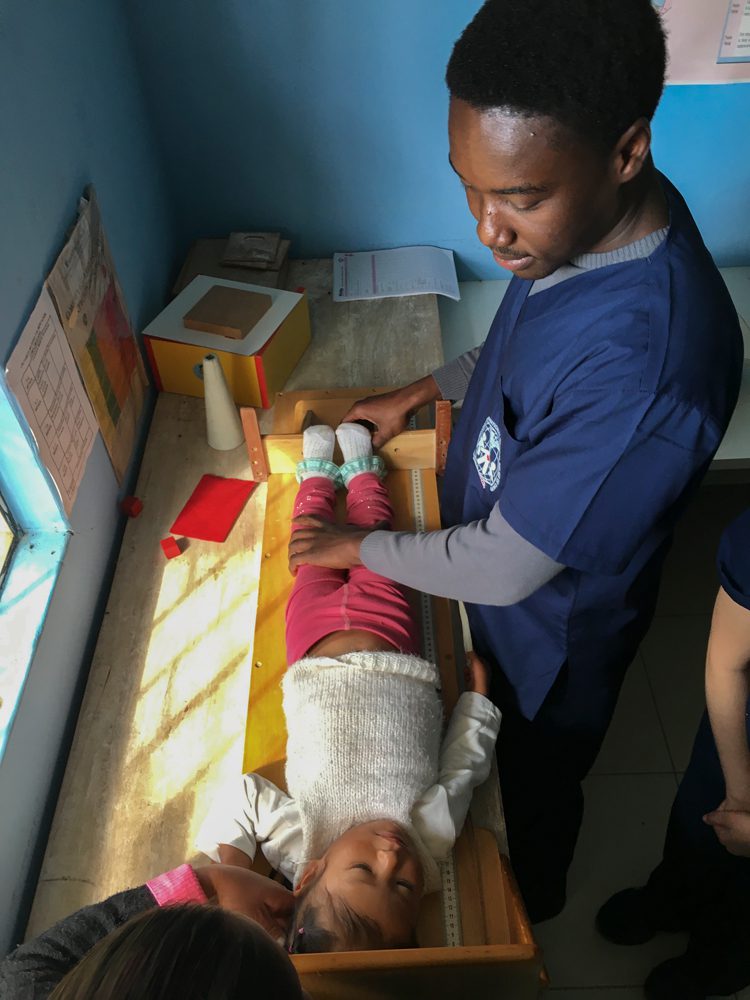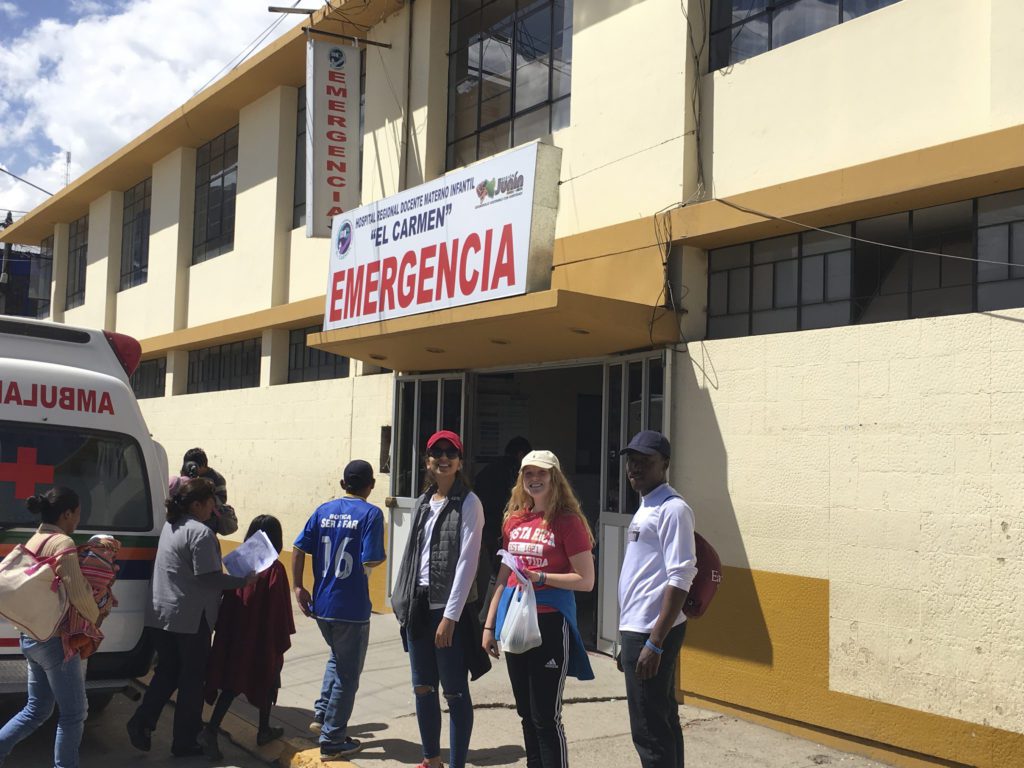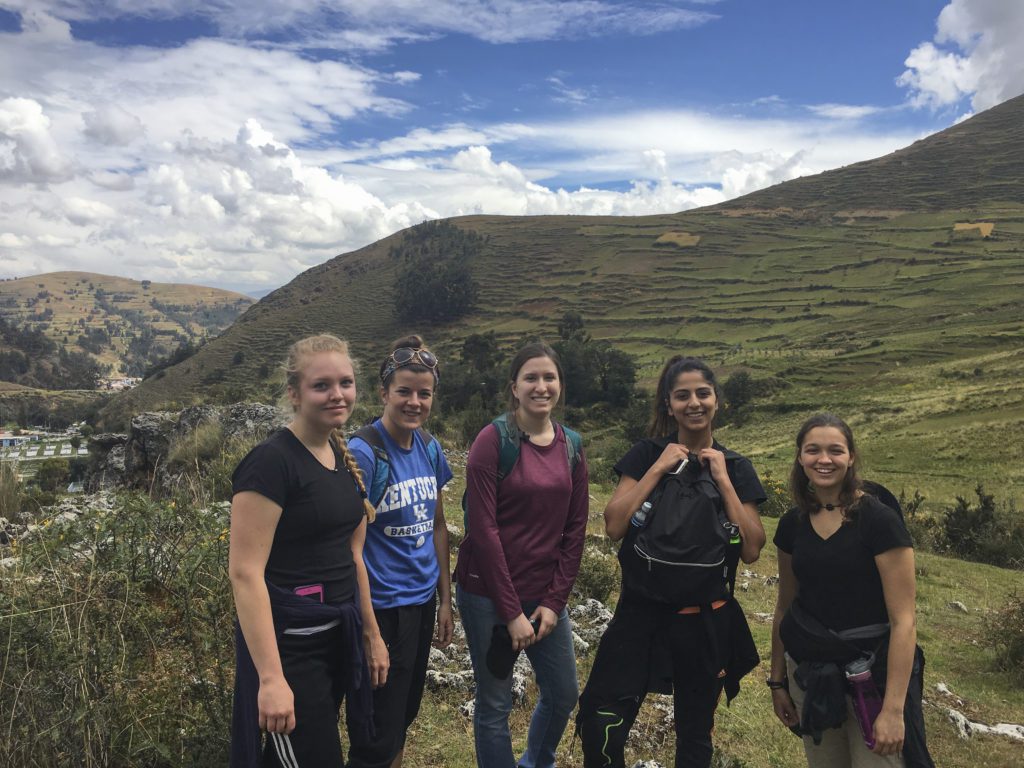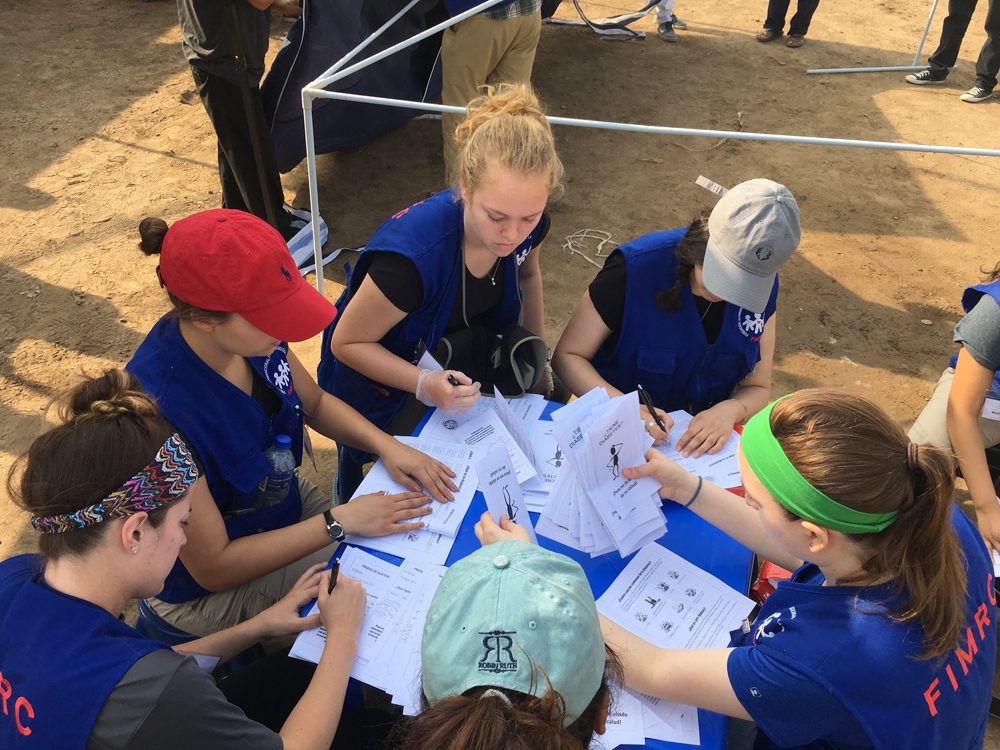A crash course in public health across Peru provided 10 Earlhamites with valuable medical training and new perspective on how healthcare works in a developing country.
For three weeks, the team of students and recent graduates helped local healthcare professionals in administering vaccines to people at risk for anemia and tuberculosis, procured vital signs, observed surgeries, and even learned the art of suturing using pig feet. The trip’s cost for students was significantly funded by Earlham’s Center for Global Health.
“It was eye-opening,” says Hannah Franklin’17 about the month-long experience that followed earning her Bachelor of Arts in Biology and becoming a member of the 1,000-point club on the women’s basketball team in her senior year. She will pursue a Master’s degree from the Duke University School of Nursing in the fall.
“I had never been out of the country before and I wanted to do something more healthcare related where I could help people.”




Mission accomplished. Within four days of arriving in Peru’s capital city of Lima, the students completed training to volunteer on two major health campaigns in communities hard hit by flooding and landslides.
“We had to jump in and be ready for anything,” Franklin says of the campaigns organized by the International Medical Relief of Children (FIMRC) and Partners in Health, two multinational global healthcare organizations.
“Everything we learned was new to almost all of us,” she says. “It was amazing how much the people were willing to let us into their lives, teach us about their culture and trust us with their children. The contrast was amazing, just in how they live their lives from how we do in the United States.
Within the first week of the trip, the team of students contributed to the efforts of providing 400 people with diabetes and blood pressure testing, health checks, dental fluoride treatments, doctor referrals and free toiletry items.
This May Term is indicative of Earlham’s distinctive approach to the liberal arts, which makes purposeful connections between classroom learning and experiential opportunities like off-campus study, internships, externships and research. The Epic initiative enhances this approach by linking what students love with what they want to do with their life, including one guaranteed funded research or internship experience. Other opportunities available to students with an interest in public health include preferred pathways to advanced degrees, internships with the Indiana University School of Public Health and an international malaria research experience in Thailand.
“Public health has emerged as a major field interest for our students. This May Term is a wonderful combination of the experiential education we value at Earlham and the clinical training and medical exposure our students will need after they graduate,” says Peter Blair, associate professor of biology and the co-director of the Center for Global Health. “After such a fast-paced experience, we made sure to give our students time to reflect on their experience and the cultural and ethical implications of the work we did there.”
Blair co-led the excursion with Jose-Ignacio Pareja, Earlham’s director of the Science Technology Commons. A native of Peru, Pareja also served as a direct link to the culture and native language of the country as the Earlham delegation left the capital city and visited rural and urban communities across the Andes Mountains.
“I got to immerse myself in the Peruvian culture while utilizing my conversational level of Spanish to navigate my way around,” says Cyrus Buckman ’18, who discovered both a taste for Lomo saltado, his favorite Peruvian dish, and a confirmation of his career goals through his medical training, which included vaccinating a woman against the flu.
“As a pre-med student, the program aligned very well with my interests as I learned how to take body vital signs and observed surgical procedures,” he says. “The experience encouraged me to continue working hard and remain focus on my goals. My convictions for pursuing medicine were reinforced through my observation of medical practices.”
Beyond health campaigns, students represented FIMRC as they designed and performed wellness skits to children at orphanages and worked side-by-side medical professionals to observe operating room procedures, take vital signs and deliver data to nurses.
“It was truly an amazing and transformative experience for our students,” Pareja says. “We hope their time in Peru reminds them of the importance of service, responsibility and caring for those in need of help, regardless of their decision to work or not in health-related fields.”
Media contact
Brian Zimmerman
Assistant vice president of strategic communications
Email: [email protected]
Phone: 765.983.1256